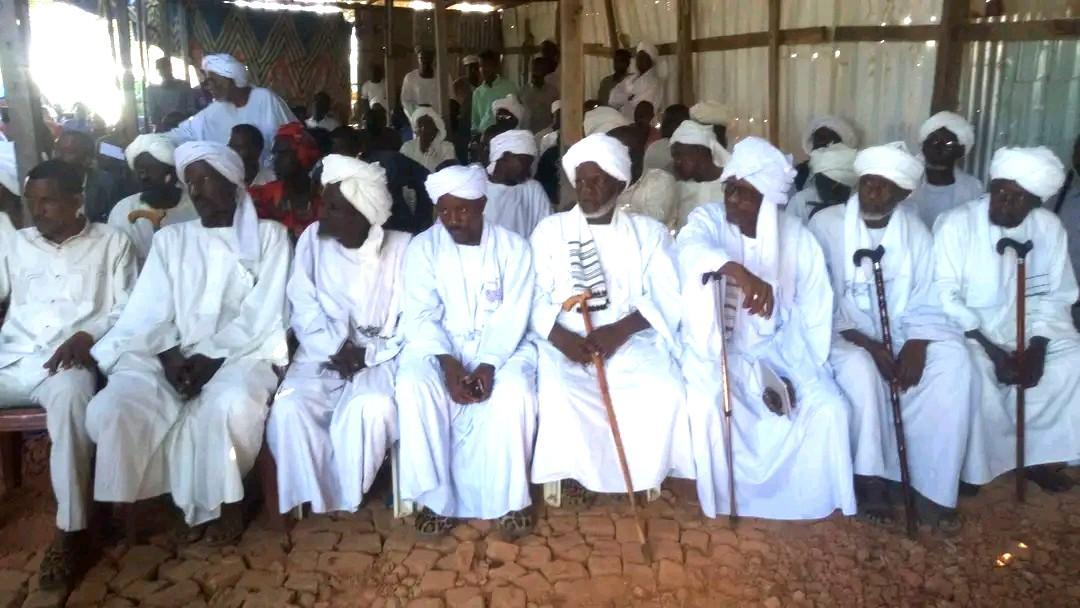Africa-Press – South-Sudan. A joint peace committee comprising representatives from the Dinka Malual, Luo, and Rezigat convened on Thursday in Nyamlel, Aweil West County, Northern Bahr el Ghazal State, and agreed to a new protocol requiring individuals crossing the border at Kiir-Adem or River Kiir to surrender their weapons to the peace committee or local authorities.
This measure applies to nationals from both South Sudan and Sudan during border crossings.
The agreement builds on previous accords reviewed during a two-day peace conference hosted by the United Nations Mission in South Sudan (UNMISS) in Aweil West County.
The conference brought together 11 members of the Rezigat peace committee and 12 paramount chiefs from the Dinka Malual and Luo communities of Northern Bahr el Ghazal State.
Majok Deng Akuacdit, Secretary General of the Dinka Malual peace committee, spoke to this publication by phone from Aweil North County on Sunday, describing the review meeting as constructive.
He noted that the joint peace committee deliberated on key protocols, fostering a positive exchange of ideas between the Rezigat, Dinka Malual, and Luo representatives.
Akuacdit emphasized that the discussions were conducted in a cooperative and amicable manner, promoting mutual benefits for the historically rival communities.
He highlighted concerns about individuals crossing the River Kiir for fishing, which sometimes leads to violence. “We agreed on the principle of being law-abiding, which means handing over weapons when entering the territory of the other pastoral community,” Akuacdit explained.
The Secretary General added that the Rezigat peace committee, led by Muhammad Musa, responded positively to the proposal. Musa, heading the delegation, emphasized the long-standing relationship between the Dinka Malual and Rezigat of South Darfur, sharing stories of historical brotherhood.
Akuacdit recounted an incident where cows stolen from a Dinka herder in Aweil were traced to South Darfur. “Muhammad Musa followed the cattle to a kraal or selling point in Darfur and informed us, enabling their recovery. We are committed to reciprocating such cooperation,” Akuacdit said.
The Secretary General also detailed discussions on blood compensation from previous agreements reviewed during the conference. “We addressed issues like blood compensation, where previously one cow was valued at 150,000 SSP. Due to rising costs, both sides agreed to revise this. For intentional killings, the compensation is now set at 41 cows or 20 million SSP in lieu of the cows. For unintentional deaths, the culprit must pay 10 million SSP, equivalent to 21 cows, as cows may die during transport to the courts, so payment in cash was deemed acceptable,” Akuacdit elaborated.
He further noted that both parties agreed to monitor their respective sides, ensuring that individuals carrying weapons are disarmed before crossing River Kiir into Northern Bahr el Ghazal State.
On the Rezigat side, Muhammad Musa praised the willingness to implement the agreement, emphasising the shared history and cooperation with the people of Northern Bahr el Ghazal at border points.
As fellow cattle herders, he said, “The people of Aweil are great, and we urge others to follow their example. Those disrupting peaceful relations are thieves, and we will handle such cases amicably and professionally.”
The peace committees have been conducting ongoing reviews with other neighbouring communities, such as the Misseriya of Kordofan, who migrate south to graze their cattle. Despite reports of theft and violence during these migrations, the committees continue to work toward resolving conflicts and fostering peace.
For More News And Analysis About South-Sudan Follow Africa-Press






